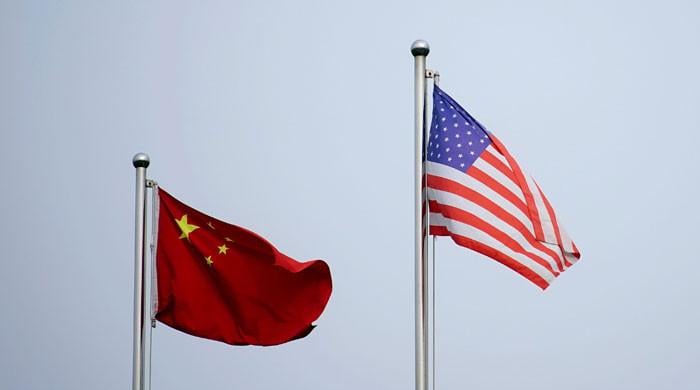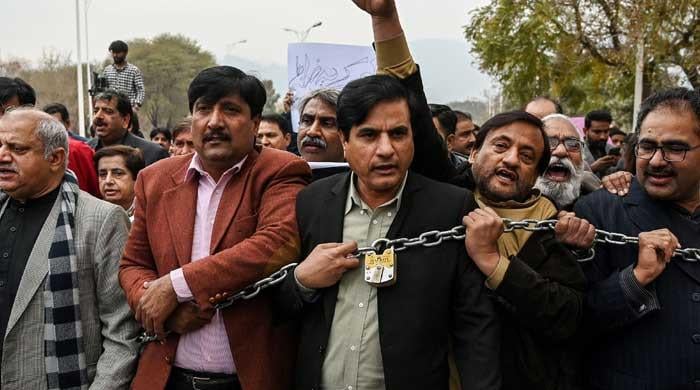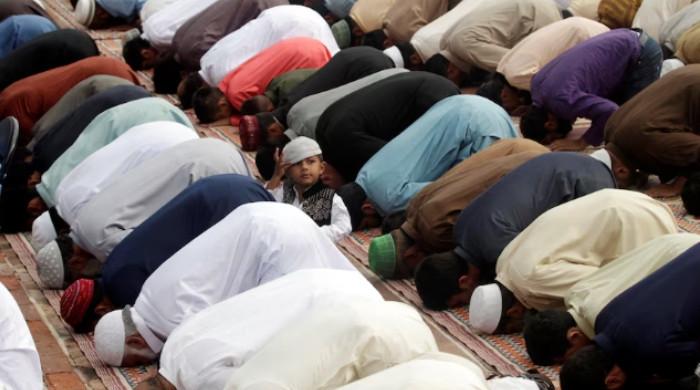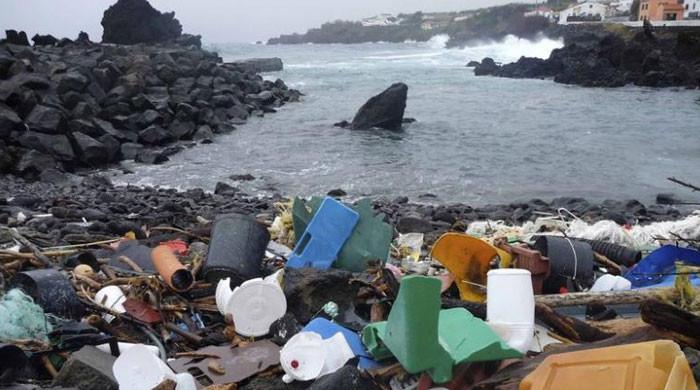Let women lead
They are waiting for world where they can work without fear and walk without danger
March 08, 2025
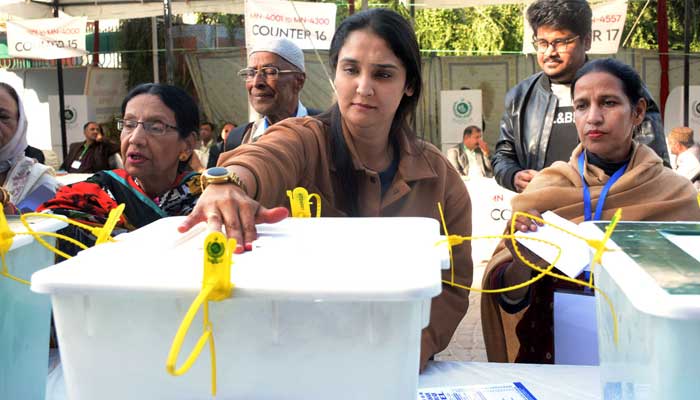
Pakistan stands at a turning point. Every year, on International Women's Day, we hear grand speeches about empowerment and progress. Yet, for millions of women across the country, those words remain just that — words.
Women are still waiting. Waiting for justice. Waiting for equality. Waiting for the basic rights they were promised but never granted. They are waiting for a world where they can work without fear, walk without danger, and speak without consequence. But how much longer do we expect them to wait?
This year's theme, 'Accelerate Action', is not just a slogan; it's a demand. We cannot keep telling women to be patient while denying them the opportunities they have earned. This is not just about fairness but about survival. It is about the future of Pakistan itself.
Women make up nearly half of Pakistan's population, yet only 22% participate in the formal workforce — one of the lowest rates in the world. Many work in fields, factories and homes, yet their labour is unpaid, unrecognised and undervalued.
Programmes like the Benazir Hari Card and the Benazir Income Support Programme (BISP) offer support, but support is not the same as independence. Women need more than government assistance; they need financial autonomy, business opportunities and equal pay.
Education is another unfulfilled promise. Pakistan has 22.8 million children out of school, most of them girls. In Balochistan, 78% of girls never even get the chance to enter a classroom. Every extra year of schooling raises a girl's income potential, delays early marriage, and strengthens entire communities. Yet, we still debate whether educating girls is a priority.
Laws exist to protect women's inheritance rights, safety, and dignity, but laws mean nothing if they are not enforced. Eighty-six per cent of women are still denied their rightful inheritance. Conviction rates for rape cases remain a mere 4.0%. In Punjab, nearly 90% of women report experiencing domestic violence.
And then there is the cost of climate change, a crisis that affects women first and worst. The 2022 floods displaced millions, leaving 650,000 pregnant women without access to healthcare and forcing millions of girls out of school. In every disaster, women eat last, sacrifice most, and struggle hardest to rebuild. Yet, when policies are made, they are the last to be consulted.
Even in leadership, women are locked out of the rooms where decisions are made. They make up nearly half the country, yet hold only 17% of seats in the National Assembly and 18% in the Senate. Reserved seats are not enough. Women deserve to compete in general elections, to govern, to lead, to shape the policies that affect their lives. A nation that ignores the leadership of its women cripples its own potential.
And yet, despite these barriers, Pakistani women continue to rise. They build businesses with little support. They educate their daughters against all odds. They fight for justice in a system designed to silence them.
For too long have they been told: 'Not now. Later' — to be patient, to wait for society to evolve, to let progress take its course.
But here's the truth: Waiting is no longer an option. Time has already run out for millions of girls forced out of school, for women denied their rightful earnings, for survivors of violence who never saw justice.
No country can hope to thrive while keeping half its population on the sidelines. We cannot build a prosperous economy while ignoring the potential of millions of women. We cannot create a just society while failing to protect them. We cannot claim to be a democracy while excluding their voices from leadership.
The women of Pakistan are not waiting anymore. They are demanding their rightful place in every sphere of life — at home, in the workforce, in the courts, in parliament and in history.
The question is: Will Pakistan rise to meet them? Because a nation that lifts its women rises with power, with dignity, and with unstoppable force.
The writer is an MNA and a member of the National Assembly's Standing Committee on IT. She holds a PhD in law.
Disclaimer: The viewpoints expressed in this piece are the writer's own and don't necessarily reflect Geo.tv's editorial policy.
Originally published in The News








